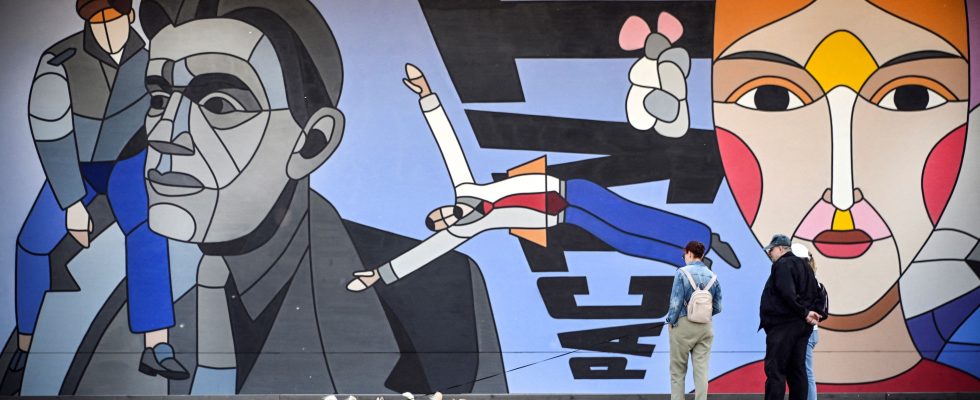Dara Evdokimova, a 28-year-old Muscovite, has been living in permanent depression for more than a year. By announcing his offensive on Ukraine on February 24, 2022, Vladimir Putin not only attacked Ukrainians: he also plunged part of Russian society into great psychological suffering. Those in the population who wanted to be open to the world find themselves trapped in war, nationalism and self-isolation. And must render accounts, vis-à-vis the outside, on the deadly seesaw of the Kremlin.
When you look the reality of the war in the face, “the hardest thing is the emotions, the feelings, confides the young woman. My sister, my friends, fifty-year-olds who had never taken medication, find themselves consuming antidepressants.” As the conflict dragged on, many Russians took refuge in denial. “My sister doesn’t want to hear about all that anymore. Six months ago, we would have talked about Ukraine together, but now we avoid the subject. Being aware, looking for the real information, it takes a lot of energy, it destroys. People protect themselves,” she continues.
Dara, who works for a major South Korean beverage company in Russia, and speaks English and some Korean, saw herself pursuing an international career. But his dreams took a turn for the worse. “For now, I’m staying in Moscow, she says. Exile is complicated, it’s expensive and we’re not welcome anywhere. My colleagues are in the same situation as me: they won’t leave the country only in case of force majeure. We have no more plans for the future.” A joke circulates in Russia: “Prospects for the future in Russia? Ten minutes.”
Sales of antidepressants on the rise
There is no data to quantify the discomfort of Russians, but the sales figures for antidepressants and sleeping pills give a clue. Russian business media had reported a substantial increase in such sales in the weeks following the start of the war. The latest available data is from September 2022. In one month, sales of antidepressants had jumped 46% compared to the previous year, according to data from a specialized marketing agency.
For Russians exiled abroad, the dejection is accentuated by the feeling of not having the right to complain. A few months ago, Natacha Bolchakova, a 30-year-old photographer from Nizhny Novgorod, left her country to settle in Georgia. She tried to talk about her discomfort on Instagram, but the critics were fired. “I was bombarded with aggressive comments: ‘What are you talking about? While people are dying in Ukraine!’ left our country, our loved ones and that we miss everyone…”
The young woman feels “locked up abroad”, aware that the country she loved no longer exists. “Before the war, I traveled a lot. I liked it because I enjoyed coming home afterwards, she recalls. Now it’s different, when I go back to Russia, the friends I see are sad , the places I loved no longer have the same flavor: the last time, I discovered that a server I knew had been mobilized and killed by a mine. As for those who remained in Russia, the abnormality of the situation prevents them from projecting themselves into the future. “It’s been going on for over a year and it’s going to continue,” she sighs.
“I will return to Russia when the regime changes”
Natacha Kurnaeva, 23, also took refuge in neighboring Georgia. It is his YouTube account in English that allows him to survive. “I had already ticked all the boxes of what was forbidden to say in Russia about the war. So, even if I don’t know what awaits me there, I won’t take the risk of going back.” The young YouTuber dreamed of making foreign Internet users aware of the best sides of her country, its landscapes, its culture… Here she is reduced to telling her life in exile and preferring to speak English rather than Russian in public places so as not to stir up anger. Georgians, worn out by the exodus of their young compatriots. “It’s hard, but I continue to follow the news of my country and I will be ready to return when the regime has changed,” she promises.
Based in Paris, Alexandre Lavut, 17, does not plan to set foot in Russia anytime soon either: “For the moment, I can only be outside the country, I am preparing to live in France. .” Far from home, this young opponent, a political refugee, has the unpleasant sensation of an “abnormal normality”, an atmosphere which gradually distances him from Russian reality. But it is certain, the time will come to reconnect with its militancy. “I am going to learn French and study. When the time comes, certainly not before ten or fifteen years, I will return to take part in the changes in my country.”
